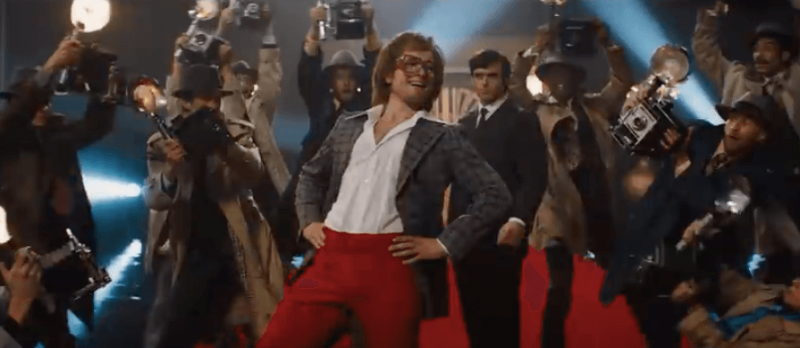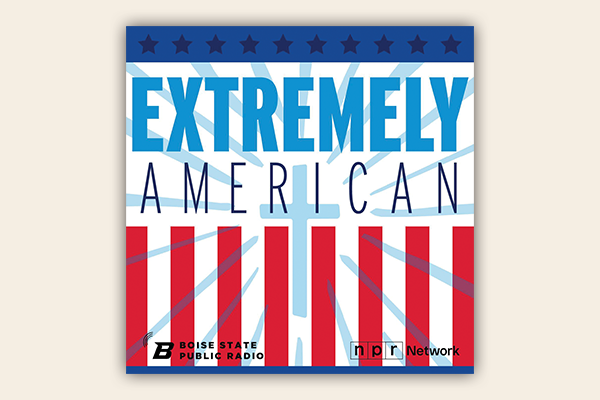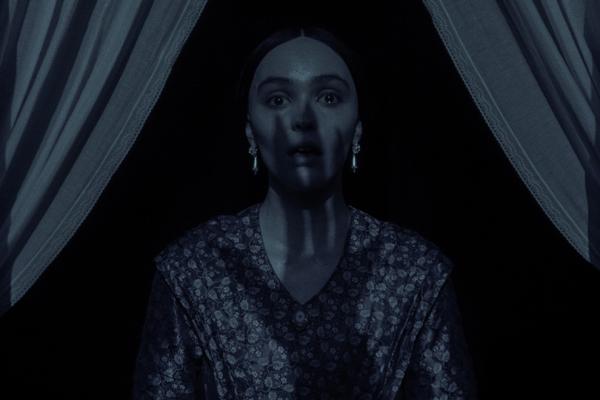The lovely new film Little Women explicitly references Louisa May Alcott’s adage that having many troubles justifies writing jolly stories – though it would be cynical to see Little Women as frothy and superficial. It’s obvious that so many of us are living through an era of struggle and concern, so a little jolliness — married to authenticity in depiction of life’s difficulties — goes a long way. In 2019, a good handful of movies left me feeling elevated; better still, the most joyful films of the year were also among the wisest.
Joy and even a bit of wisdom appeared in Long Shot, a political satire about what it takes to get elected, and how honesty about vulnerability might actually attract voters now that we’ve had three years of uncensored id from the top. Terminator: Dark Fate, unsurprisingly, relied on over-the-top violence to drive its action, but also rooted itself in a real world of pro-women, pro-immigrant politics. Spiderman: Far From Home married the sensibilities of a John Hughes high school comedy with a post-millennial sensitivities of gender diversity, tolerance, and a keenness to find less lethal solutions to defeating bad guys. And Ford v Ferrari excited and nourished audiences looking for fast cars and the joy of living rather than the need to win. It was an action film in which relationships mattered. But for cinematic action that towered above them all there was the documentary reconstruction Apollo 11, a genuinely astonishing use of the big screen to reveal the sheer doggedness of the moon landing mission.
screen_shot_2019-12-20_at_2.29.50_pm.png

Mary Magdalene didn’t make much of a dent, which is a pity. Her story — about loving from the margins and living fully despite other people’s attempts at excluding her — is one of the things that might turn our wounds into scars. The Mustang dealt with prison rehabilitation and a kind of restorative justice, with one of this year’s two gorgeous Bruce Dern performances; and The Peanut Butter Falcon was a delicious dream, mingling Rain Man and Huckleberry Finn: compassionate, hilarious, moving.
Glass was burdened with the weight of high expectations, being the sequel to the last M. Night Shyamalan film to be widely acclaimed (although I continue to champion his 2004 The Village as the most elegant, thoughtful, and moving cinematic analogy for the immediate post-9/11 era). Glass followed Split and Shyamalan’s earlier Unbreakable in attempting compassion for villains where there is usually disdain and revenge. And it attributed to nerds the power to make the common good. It was near enough a coherent vision of everyday heroism to be remembered.
Perhaps the loveliest surprise of the movie year was the Elton John biopic Rocketman. It’s rare for a film with a living subject to be so self-critical, for a story of addiction and recovery to be so honest, and for a musical biopic to be so exciting. (And while not a biopic per se, Bruce Springsteen’s operatic Western Stars tells a great deal about both its protagonist’s inner life, and a vision of masculinity, like Sir Elton’s, that shows strength and vulnerability as inextricably linked.)
screen_shot_2019-12-20_at_2.36.25_pm.png

Two other biographical films about writers produced even deeper delights: Wild Nights with Emily and Vita and Virginia each honor their subjects, Emily Dickinson, Virginia Woolf, and Vita Sackville-West, by telling more truth about their loves and struggles, and therefore their achievements. Tonally opposite, but thematically parallel is the lovely documentary Terrence McNally: Every Act of Life, in which the playwright’s life is an invitation to reconsider the last five decades of American theatre as containing an underbelly of pain and redemption, and of the absolute appropriateness — necessity, even — of referring to the gay community’s love, valor, and compassion.
There were three films that clearly embody aesthetic and philosophical qualities worthy of praise, but left me uncertain what to make of them: Joker, Once Upon a Time…in Hollywood, and JoJo Rabbit. Joker, like Glass, wants to explain its villain’s cruelty, but comes dangerously close to justifying it. Once Upon a Time…in Hollywood is a rich fantasy of 1969 Los Angeles, with the year’s other great Bruce Dern performance, but Tarantino’s decision to resurrect Sharon Tate by means of one of the most dehumanizing sequences of violence seems to me to be evidence not of creativity, but a lack of imagination. (Danny Boyle and Richard Curtis’ Yesterday is a totally different kind of movie, and a lovely one at that, with a far more imaginative take on the same kind of murderous cruelty.) And JoJo Rabbit provided me with the paradoxical experience of loving a movie the first time, but being troubled on the second viewing. Taika Waititi is clearly aiming to pierce the grandiosity and self-deception of fascism, and show not just compassion but solidarity for its targets, and resisters. There’s certainly a noble history of turning horror into comedy (Blazing Saddles, Dr. Strangelove, and more recently Four Lions are probably the best examples), but there are times when I wonder if we’ve made enough jokes, and if the best response to political selfishness might be the silence of judgement.
So, to the list, for what it’s worth:
15. A Beautiful Day in the Neighborhood - which shows how profound kindness is both the product of a decision, and a decision available to all of us, any place or time. What matters is just making the decision.
14. Booksmart - which demands that the parts of us who feel lack within ourselves seize the place where we have the power to revel in making a good life.
13. The Two Popes - which may not be the most factual depiction of a long conversation between Popes Benedict and Francis, but is certainly a wonderful portrayal of different ways of being Christian, and the place where traditional conservatism and contemporary progressive theology can best meet: wherever they bear most life-giving fruit for the world.
12. Knives Out - Rian Johnson's brilliant revolution in country house whodunnits, turning Agatha Christie-style devilment into a confrontation of colonial power with its hidden sins.
11. Motherless Brooklyn - the closest thing to Chinatown in years, and an encouragement to keep going, because even if the only fish you ever catch are the medium-sized ones, at least you’re still fishing, and there’s bigger things than fish.
10. Gloria Bell - another free woman, claiming a kind of warrior-joy.
9. Diane - a rare film that actually deserves to be called “a meditation,” because it’s literally about a woman reflecting on her life slipping away, wondering if she has wasted it.
8. The Dark Crystal: Age of Resistance - a ten-part Netflix series, but other than the fact that it’s not screening in a theatre, there’s nothing about it that isn’t cinematic. More importantly, it takes beautiful ideas seriously: mentoring, interdependence, honoring the land, and the nature of good and evil.
7. Parasite - takes the same topic as Joker, social and economic brutalization, and shows that it’s more than possible to explain the feelings that contribute to violence without defending the violence itself.
6. The Irishman - a gangster film where self-deception, selfishness, and cruelty produce a life whose greatest burden is the protagonist’s inability to feel the regret he knows he should.
5. Ad Astra - a film that goes to the deepest reaches of space to initiate a man in freeing himself from the myths he believes about his father; in short, he goes to Neptune in order to grow up.
4. Marriage Story - too good to ignore, maybe too painful to watch more than once, simply this: an honest depiction of human beings trying to deal with a warm blanket that has turned into jagged ice.
3. The Farewell - a brilliant mingling of genres, deliriously happy and sad, cross-culturally welcoming, and an insight into how much alike we all are.
2. The Last Black Man in San Francisco - an operatic rage against the messed-upness of gentrification, and the home we find in ourselves only through the mirror of intimate friendship.
1. A Hidden Life - a hymn to the beauty we all can share, a manifesto for the courage to resist systems that consider some lives worth more than others, an honoring of nonviolent suffering love, a prayer.
Parasite suggests that we’re all looking out the same window, being asked to consider what we will do when the flood comes. A Hidden Life gave me an answer. The dialogue that I’ll remember the most from this year is simple, but contains a universe of possibility. When the Austrian Catholic conscientious objector Franz Jägerstätter (August Diehl) is offered the opportunity to recant his refusal to swear an oath of loyalty to Hitler, the promise is made that if he just signs a document, he’ll be free. To which Jägerstätter responds, But I’m already free. It’s not just a moment of great power in cinema. It’s a generous invitation to the rest of us.
Got something to say about what you're reading? We value your feedback!







